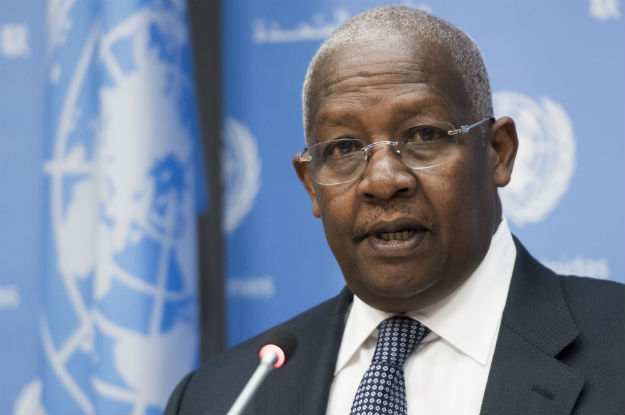Uganda’s Foreign Affairs Minister Sam Kahamba Kutesa has responded back to European Union (EU) Parliament on proposed sanctions against government officials.
Last week, the EU Parliament recommended sanctions against Ugandan individuals and organisations they claim are responsible for human rights violations during the recent general election, which it said wasn’t democratic and transparent.
The EU Parliament, in its statement issued on Thursday, resolved that “…sanctions against individuals and organisations responsible for human rights violations in Uganda must be adopted at EU level under the new EU (European Union) human rights sanction mechanism, the so-called EU Magnitsky Act”.
However, according to Kutesa, the resolution raises a number of concerns and allegations.
“It also makes a number of recommendations that are, in many aspects, both surprising and of utmost concern to my government.”
He said in order to comply with the election road map, the Electoral Commission followed guidelines from the Ministry of Health developed SOPs for the conduct of the elections, which were adopted following consultations with all the presidential candidates.
From the beginning of the campaigns, Hon. Robert Kyagulanyi and Mr. Patrick Oboi Amuriat promised a ‘Plan B’, which according to them, was (and remains) a plan to commit violent acts, organize an insurrection, and “make Uganda ungovernable”.
On November 2020 incidents, he said needless to say, where it will be determined that particular individuals (security personnel) acted outside the law, they will be held accountable in accordance with the law.
“Nobody, contrary to all sorts of claims that go around from all sorts of groups and actors, gets discriminated upon, persecuted and prosecuted on the basis of their sexual orientation in Uganda and the government would challenge anyone.”
He said government strongly believes that the media is an important part of a democratic society and is essential to the protection of human rights, fundamental freedoms and socio-economic transformation.
On Internet shutdown, Kutesa said this was a necessary step to stop the vitriolic language and incitement to violence, which was a threat to the democratic process and the security of the country and it’s citizens.
“The US Government as per custom was invited to observe the elections but ultimately did not deploy the 68 observers that were accredited by EC.”
He said government recognizes the critical role played by NGOs in the advancement of democracy and the betterment of society.
However, all NGOs registered in Uganda are expected to comply with the law.
“Government is committed to ensuring domestic tranquillity, the security and welfare of its citizens.”
Early this week, the United Kingdom also cut funding to security forces and also promised to review aid to Uganda over what they called human rights abuses.
Under a similar arrangement, the United States government recently sanctioned a number of Ugandans that it accuses in engaging in a wide range of abuses. Those sanctioned include army generals and judges.
In the EU parliament resolution, they demanded the government of Uganda to drop all charges against people detained for participating in what they called peaceful political assemblies and exercising freedom of expression.
The EU Parliament said the human rights abuse in Uganda has a negative impact on the security of the region, especially the democratic processes in Somalia.
![]()




























